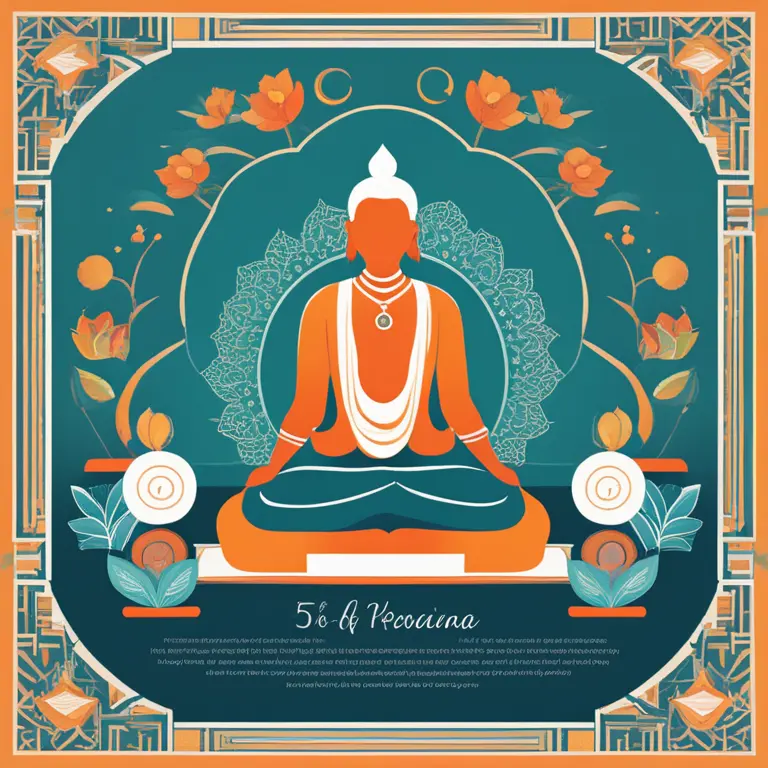
Calm Your Mind: Meditation Techniques to Ease Anxiety
Discover meditation methods that can help soothe your anxious thoughts and bring tranquility to your everyday life.
article by Hina Kurosawa
Mindful Breathing for Serenity
Breathwork is a fundamental aspect of meditation that helps to quell anxiety. It encourages a focus on the present moment and can swiftly redirect your thoughts away from worries. Start with a simple technique: Close your eyes and take deep, slow breaths. Count to four as you inhale, hold for a moment, and then count to four while you exhale. Practicing this for several minutes can promote a sense of peace and balance.

The Art of Body Scan Meditation
A body scan is a technique that involves paying attention to different parts of the body in turn and consciously relaxing them. Lie down or sit comfortably and begin at the toes, methodically moving your attention through each part of your body. This practice not only diverts your mind from anxious thoughts but also helps to recognize and release physical tension related to stress.

Visual Imagery for Emotional Relief
Visual imagery is a creative and powerful meditation technique where you envision a peaceful scene or setting. Picture yourself in a location that makes you feel relaxed – perhaps a quiet beach or a serene forest. Engage all your senses in this visualization to enhance the calming effect, and let the imagined tranquility permeate your being to ease symptoms of anxiety.

Mantra Meditation to Center the Mind
Mantras are phrases or sounds that are repeated during meditation to aid concentration and induce calm. Choose a mantra that resonates with you, such as "Om" or an affirmative phrase like "I am at peace." Reciting your mantra in a rhythmic pattern can act as a mental anchor, drawing you away from anxious ruminations and toward a state of mindful stillness.
Moving Meditation Practices
Meditation doesn't always involve stillness. Moving meditation practices like Tai Chi, Qigong, and walking meditation combine gentle movements with mindfulness to anchor you in the present. They can be particularly helpful for those who find it difficult to remain seated and still when anxious. These moving meditations provide the dual benefit of physical activity and mental clarity.
Guided Meditation for Structured Relaxation
If you find it challenging to meditate alone, guided meditation could be an effective alternative. These sessions, led by an instructor through audio recordings or apps, provide step-by-step directions for the meditation process. They can be tailored to address anxiety relief, helping you to navigate through the meditation with the support of a guiding voice.
Establishing a Consistent Practice
Consistency is key when using meditation to manage anxiety. Dedicate a specific time each day to practice, whether it's morning or evening, to develop a routine. Moreover, creating a tranquil space dedicated to mediation can further enhance your practice. Remember, while meditation is a powerful tool, it works best alongside other anxiety management techniques, and may take time to show results. Be patient and persistent in your practice.
Published: 2/12/2024
Modified: 2/12/2024
More predictions
Come back here soon to learn more about yourself and your future


The Harmonic Resonance of Meditation Music
Delve into the serene world of meditation music and discover how it amplifies your spiritual and astrological practices, guiding you toward inner peace and cosmic synchronicity.


The Serenity of Meditation Music: An Ethereal Journey
Discover how meditation music can enhance your spiritual practices, support stress relief, and align with astrological energies for a harmonious life.


Meditation Explored: 10 Cutting-Edge Discoveries
Meditation, an age-old practice, has been undergoing a modern renaissance, with science diving deep into its mysteries. As researchers explore its intricacies, they continue to unveil fascinating facts that bridge ancient wisdom with contemporary discoveries.